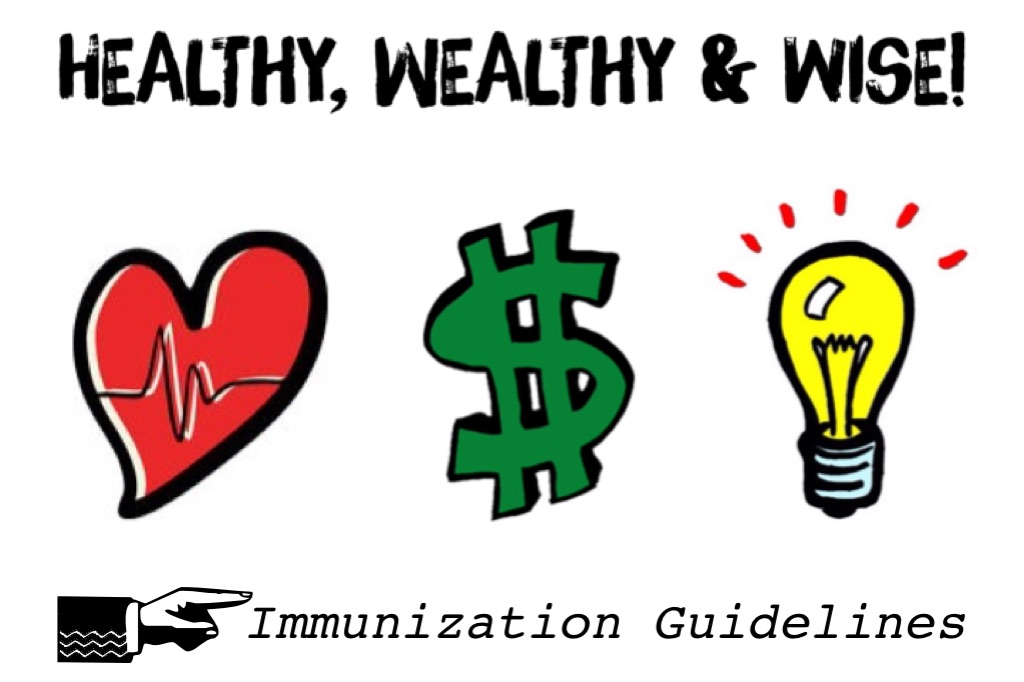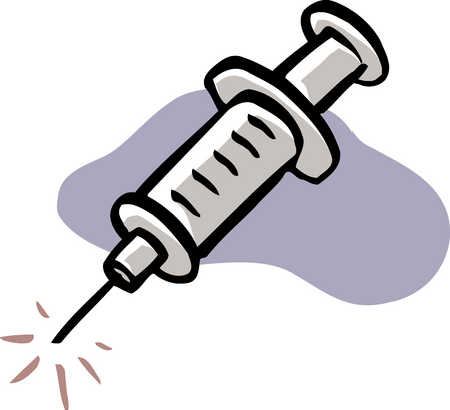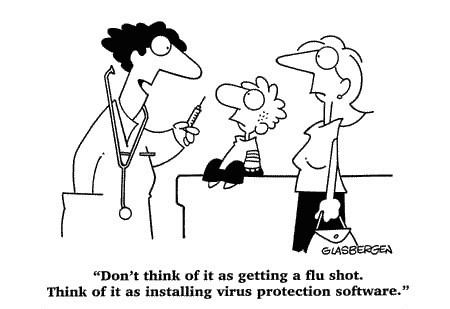Healthy, Wealthy And Wise! Immunization Guidelines!
August seems to have gone by with warp speed–and now we’re all busy doing those things that come with summer coming to an end, school starting and life settling into a little more of a scheduled routine.
I thought I’d devote this month’s “Healthy, Wealthy And Wise” journal entry to the important topic of vaccines and immunizations since many parents are now preparing to send their children back to school. When we are proactive about our personal health, not only does it help aid in the prevention of unnecessary illnesses, it can also help us save money that might otherwise have to be spent on medical costs when seeking treatment when we are sick. I also think it goes without saying, that acquiring any sort of knowledge that will ultimately help us have a better quality of life, is indeed wise!

With the resurgence of many previously eradicated diseases, such as whooping cough and measles, the National Center of Disease Control has recently issued a warning that authorizes many schools, including colleges, the right to withhold entrance to those who are not current with required vaccinations.
(You can read more on the subject of immunizations here.)
The Immunization Debate Is Real!
The United States public health officials and many in the medical field have had to combat many misconceptions about vaccine safety for a number of years now. Despite the fact that countless studies have found no reliable evidence to support the notion that vaccines can cause autism or other chronic illnesses, a growing number of parents still refuse to vaccinate their children. The fear that vaccines would increase the risk of childhood autism first gained public leverage in 1997 when an article was published by Andrew Wakefield, a British surgeon, linking the two together. But according to the CDC, this paper has since been completely discredited due to serious procedural errors and undisclosed financial conflicts of interest. The paper has since been retracted from all medical publications and Dr. Wakefield lost his license. Still, the many years of research it took to create viable vaccines lost critical ground in a matter of mere months by the unethical practices of the scientific personnel associated with this now debunked study.
So let’s remind ourselves about the basic, fundamental elements of immunizations:

• What is a vaccine? A vaccine is substance prepared from dead or living organisms that is introduced into the body via an inoculation that causes the development of key antibodies, which will then produce immunity to the disease caused by the microorganism.
• Why is it important to be immunized? An immunized person develops antibodies in response to the pathogens introduced when they are vaccinated; the antibodies stay in the bloodstream for years, even a lifetime, which allows the body to quickly react and protect itself against the disease when he or she comes in contact with the disease in the future.
Pediatric Physician’s Viewpoints!
In my role as a maternity and nursery nurse, I’m often able to help provide the first line of defense for babies in the fight against contractible diseases, since parents have the opportunity to give consent for their newborns to receive the Hepatitis B vaccine within 24 hours after birth. When parents decide to defer this vaccine, I see many knowledgeable pediatricians try to better educate them on the value of keeping their children up to date on life saving vaccinations.

If I were to summarize the viewpoint on immunizations from the pediatricians I have the privilege of working with, it would be that they recognize that parents want to do what is right for their children. Doctors are also aware that many families today don’t fully recognize that measles, mumps and whooping cough, just to name a few, are not the quaint, old diseases of the 19th century. Most pediatricians find it a daunting task sometimes, to defend years of science and research against popular public opinion and current trends; emotions always outweigh statistics. Simply stated, doctors find that the best way to deal with parental concerns is by appealing to these emotions and taking the kind of approach that Dr. Ari Brown talks about in her popular book, Baby 411.
I tell parents, “I vaccinate myself and my family to protect them, I wouldn’t do anything different with yours.” Nothing works 100% of the time, but I can honestly say that this approach works more effectively than anything else I say, and it takes less than two minutes.
Current Immunization Schedule:
As mentioned earlier, our children are not the only ones who need to receive immunizations, there are vaccines that we as adults need as well, such as H1N1, (better known as the flu shot) tetanus, meningococcal, etc. You’ll find an easy to understand immunization schedule here, that way you can help your family stay current on their vaccines.
Hopefully, you’re inspired to do more research on immunization guidelines and the need to be proactive where our own health is concerned, as well as that of other family members. Should anyone you know experience a negative side effect from immunizations, consult your physician and seek treatment, as well as other viable vaccine alternatives. (My oldest granddaughter had a severe reaction to her first influenza inoculation and had to be hospitalized; she won’t be able to have another flu shot until they can make one without an egg based mixture, so obviously my daughter is careful to go the extra mile to keep her safe and well during the cold and flu season.)
I’d like to end with a profound quote by Dr. Paul Offit, an infectious disease and vaccine expert, and director of the “Vaccine Education Center” at the Children’s Hospital of Philadelphia:
“I would make the case that a choice not to get vaccines is not a risk-free choice. Rather, it’s a choice to take a different and far more serious risk.”
I would love to know your experiences with keeping your family up to date on their immunizations. Were you aware that there were recommended vaccines for adults too?
–Mary

Lots of great information. Thanks for an informative post. I support vaccinations and am grateful that my grandchildren’s mothers do as well.
Thanks, Shauna! A little good information can go a long ways towards clearing up some of the myths that are out there about vaccines!